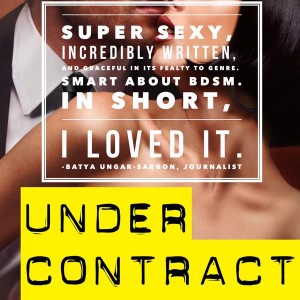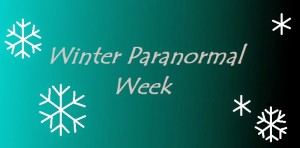 I loved these words so much, I just had to Word Swag them. Batya Ungar-Sargon messaged them to me about my book, UNDER CONTRACT. We met when she took my workshop on consent at the RT Convention and then she asked to use that material for this terrific article she wrote on romance and feminism.
I loved these words so much, I just had to Word Swag them. Batya Ungar-Sargon messaged them to me about my book, UNDER CONTRACT. We met when she took my workshop on consent at the RT Convention and then she asked to use that material for this terrific article she wrote on romance and feminism.
My favorite bit? “Graceful in its fealty to genre.” It’s a distressingly far too widely held opinion that writing romance is easy. The genre is derided for its highly defined tropes and inevitable happy ending. It’s true that romance readers have definite expectations – but that means it’s more difficult to write, not easier. Telling a good story, the story you want to tell, while adhering to the tropes is a delicate dance. Thus, “graceful in its fealty to genre” is one of the best accolades ever.
“Incredibly written” is pretty nice, too.
I want to talk a bit today about the Top X lists. You know the ones I mean. “The Top 100 Best Books of the Century.” “The Top Ten Fantasy Books Every Woman Should Read.” Etc, etc.
They’re proliferating more than ever because of sites like Buzzfeed, Salon and Huffington Post, which thrive on numbered lists of all kinds. Lists get clicks. Numbered lists are one of the favored varieties of Clickbait out there right now.
Writers and readers are constantly encouraged to name their “Top Whatever” lists. Favorite book, favorite author, favorite book boyfriend. For writing guest posts and articles, making lists like this can be a fairly fast and easy way to go.
I, however, think they’re dangerous.
That’s what I said – and I don’t think I’m overstating. This is why.
To me, this is another exercise in the inevitable interview question posed to anyone who’s had a microphone thrust in their face: What book is on your beside table? (A phrasing I love because they’re not actually asking “What are you reading?” and – maybe this is just me – my bedside table is a kind of TBR pile purgatory, where books can languish for years, quietly gathering dust and sneering at my procrastination.) Equally inevitable, the person will respond with A Tale of Two Cities or some such. Seriously, I considered it a drinking game there for a while, how many celebrities, politicians and other interview-friendly folks cited reading A Tale of Two Cities.
Of course, maybe it’s that everyone *starts* the book, because we all feel we SHOULD read it, and then every last one of us ditches it in bedside table purgatory because the damn thing is so stiflingly dull. (Yes, I tried to read it. Stalled on page 121, marked with a 1992 bookmark. It’s back on the bookshelf, though.)
If they don’t say A Tale of Two Cities, then it’s Great Expectations or War and Peace or Moby Dick. Right? Because everyone wants to sound smart. No one is going to say Robin McKinley’s Shadows, which is the book currently languishing on my bedside table, or Molly O’Keefe’s Everything I Left Unsaid, which I’m currently devouring on the Kindle. At any rate, all of this is evidence of the ongoing conflict between what we think we should read and what we actually read.
These lists, then, tend to reinforce the “should read” side of things, which is to say, the surface, social version, rather than the reality. In fact, many of the lists include “should” in the title, creating an onus by their very existence. Worse, because people who compose the lists want to look smart and well-read, they all tend to include the same books. The ones everyone cites as being the ones to cite.
See how this cycle perpetuates?
Maybe saying this is dangerous IS putting it a tad strongly. But I do think it’s counterproductive, continues to elevate the same group of books – which creates homogeneity – and reinforces snobbery.
Read what you want to read!
